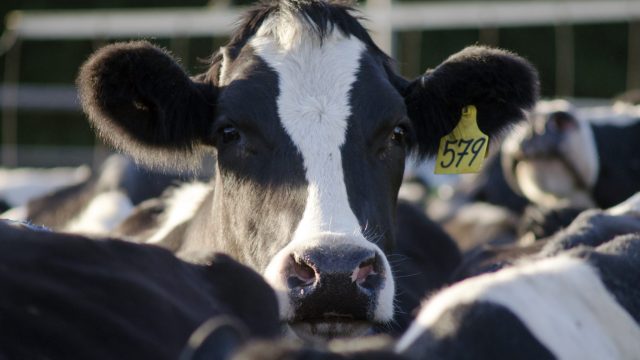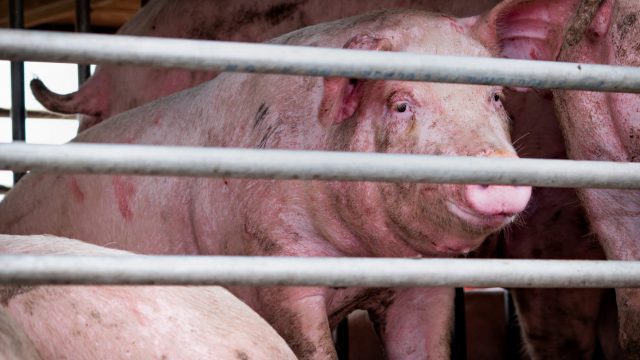
Brussels Recognizes Animals as Sentient Beings Distinct from Objects
By Nicole Pallotta, Academic Outreach Manager
On November 23, 2018, the Brussels Parliament unanimously voted to recognize animals – previously categorized with property and immobile goods – as a special category. Under the new legislation, animals will be categorized as “a living being endowed with sensitivity, interests of its own and dignity, that benefits from special protection.” Similar measures that would codify this understanding of animals as sentient beings are reportedly being considered at the federal level in Belgium, as well.
According to the Brussels Secretary of State in charge of animal welfare, Bianca Debaets, “The ultimate aim is for animals to benefit finally from the legal status that corresponds to their biological nature.”
Brussels is not alone in amending its law to recognize animals are more than “things” or mere property. In 2015, France[1], New Zealand[2] and Quebec[3] similarly amended their laws to recognize animals as sentient beings.
Most recently, in September 2018, Slovakia updated the definition of “animals” in its Civil Code to reflect that they are living beings, not things. The Slovak Spectator reports that under the new definition, “animals will enjoy special status and value as living creatures that are able to perceive the world with their own senses. Provisions on movable things apply to animals but not if it contradicts the nature of an animal as a living creature.”
Several countries have also included provisions relating to animal sentience, dignity, or protection in their constitutions, most recently Austria in 2013[4] and Egypt in 2014[5].
In the U.S., animals are classified as property and for the most part considered to be “objects” under the law. However, some state legislatures have addressed animal sentience. For example, as a result of legislation that the Animal Legal Defense Fund helped draft and pass in 2013, Oregon law recognizes that “animals are sentient beings capable of experiencing pain, stress and fear[6].”
What effect these laws will have on everyday practices or enforcement remains to be seen, but they are undoubtedly a step in the right direction and signal a growing awareness that the law is antiquated in many cases when it comes to its conception of animals. Animals are different from “property” in significant and intrinsic ways, and the law should evolve to recognize them as such.
Further Reading:
● Sentient Legislation: Animal Legal Defense Fund’s Canadian Province Rankings Motivate Change. The Animal Legal Defense Fund. October 21, 2015.
Donate to Protect Animals
Help animals win the legal protections they so desperately need and deserve, and ensure they have an advocate in courtrooms and legislatures across the country.
[1] In “France: Animals Granted New Legal Status,” Nicolas Boring claims this change will have little practical impact and is seen by most to be symbolic. In contrast, Alice DiConcetto, in “The 2015 Amendment to the Code Civil in France: Animals as sentient beings, and as non-property,” argues: “This highly nuanced change may seem slight, yet it is an essential step... the section is significant and tangible progress: under the French Civil Code animals are not property anymore. It is now up to the courts to give a meaningful interpretation of section 515-14 of the Civil Code, and to confirm that animals are non-property.”
[2] New Zealand: Animal Welfare Legislation Recognizes Animals as Sentient, Bans Cosmetic Testing
[3] Quebec B-3.1 - Animal Welfare and Safety Act
[4] Eisen, Jessica. “Animals in the constitutional state.” International Journal of Constitutional Law. Volume 15, Issue 4. November 2017. Pages 909–954.
[5] Stilt, Kristen. “Constitutional Innovation and Animal Protection in Egypt.” Law and Social Inquiry. Volume 43, Issue 4. Fall 2018. Pages 1364-1390.
[6] As did the Oregon Supreme Court in a 2016 landmark ruling. See: “Oregon Supreme Court: Blood Draw is Not a 'Search'.” Animal Legal Defense Fund (July 2016).
How We Work
Issues
Related
-
Animal Legal Defense Fund Grant Supported Washington Attorney General’s Enforcement of Animal Cruelty Law
The judge sentenced a Snohomish County resident for killing then displaying neighborhood wildlife and shooting a kitten in the eye.April 18, 2024 News -
REPORT: 95 Percent of Consumers Prefer “Climate-Friendly” Products, But Labels Oversell Emission Reductions
New report reveals how misleading labels lead to increased confusion among consumers searching for more sustainable, less environmentally damaging products.April 2, 2024 Press Release -
Lawsuit Filed Demanding FDA Respond to Petitions Seeking to Ban Ractopamine
FDA’s approval for ractopamine relied primarily on safety studies conducted by the drugmaker.March 26, 2024 Press Release




